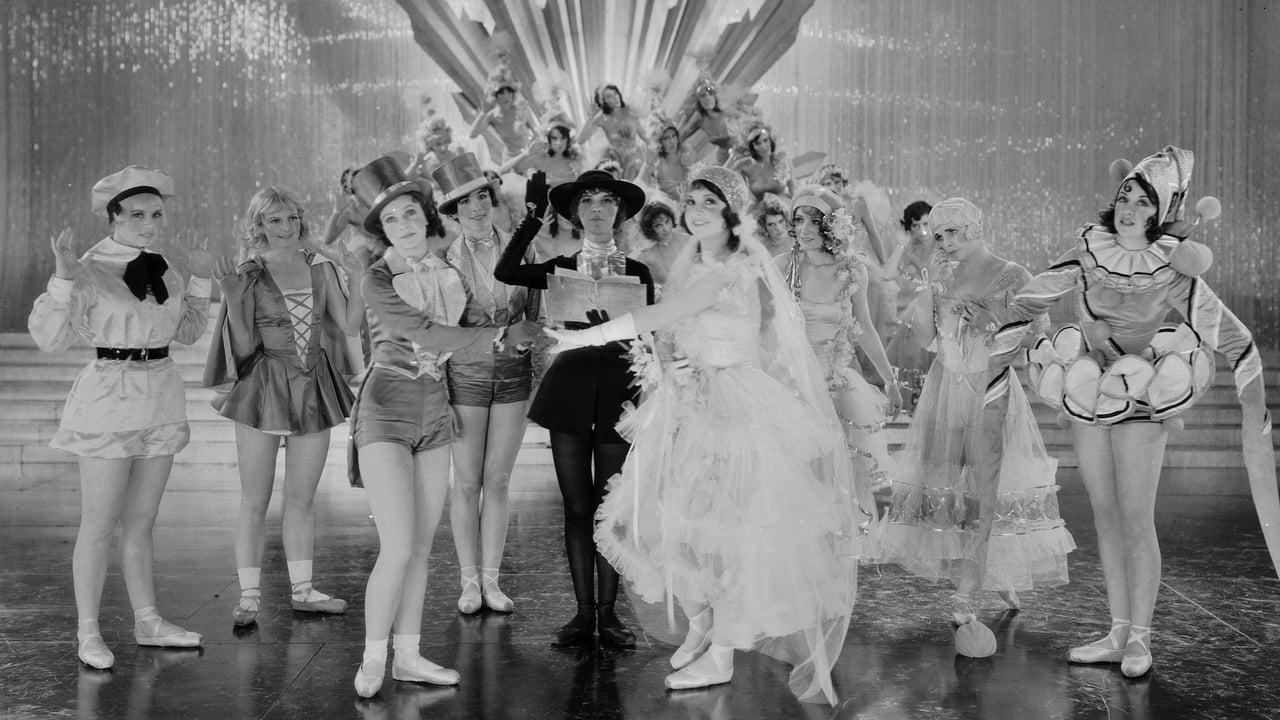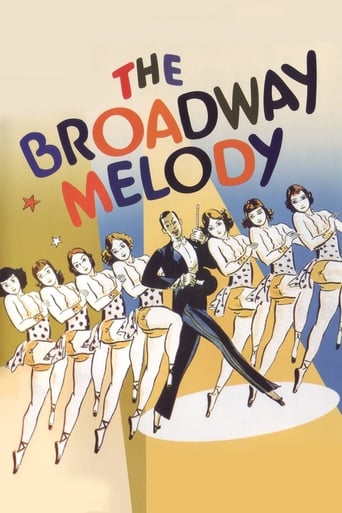

Sadly Over-hyped
... View MoreAwesome Movie
... View MoreI didn’t really have many expectations going into the movie (good or bad), but I actually really enjoyed it. I really liked the characters and the banter between them.
... View MoreAmazing worth wacthing. So good. Biased but well made with many good points.
... View MoreThis 1929 Harry Beaumont-directed movie won an Oscar for Best Picture at the 1928-29 Oscar ceremonies. It features the songs by Nacio Herb Brown (composer) and Arthur Freed (Lyrics) and they both have small parts in the movie. This is a fairly entertaining movie, considering the time in which it was made. I wonder if this was the first MGM sound movie about putting on a Broadway show? (The IMDb cast list is rather skimpy in that it doesn't tell us more about who played which role. For example, I would like to know who played the stuttering uncle. He was sort of entertaining and should have been listed in the cast.) Charles King (Eddie Kearns), Anita Page (Queenie Mahoney), and Bessie Love (Hank Mahoney) steal the show as a boyfriend and two sisters from out of town. The theater owner's name was Francis Zanfield (Eddie Kane), and one wonders if this isn't a takeoff on the name, Florenz Ziegfeld. (Well, I probably just answered my own question there!!) The story, itself, is rather thin, but the entertainment is good. One thing it presents, that I had never seen before or since, is a woman tap dancing on her toes in ballet slippers. To me, this was really quite a remarkable feat on some really remarkable feet!!
... View MoreA pair of sisters from the vaudeville circuit try to make it big time on Broadway, but matters of the heart complicate the attempt.This was the first sound film to win an Academy Award for Best Picture. Now, maybe it got that award because sound was new and you have people singing and dancing... but wow, this film has not held up over the last 80 years. The plot is weak, the actors not notable and the songs just not very good at all.Is this the worst Best Picture winner ever? Probably not, but it has to be in the running, probably in the top five (or bottom five). For what it's worth, though, no films in 1929 are all that memorable today... maybe Ernst Lubitsch's "Patriot", but even that's a stretch and far from his best work.
... View MoreThe following are lyrics by Arthur Freed - A million lights they flicker there - A million hearts beat quicker there - No skies of gray on the Great White Way - That's the Broadway Melody.Released in 1929 - The Broadway Melody is a somewhat difficult movie to review since one feels that with every comment they must be reminding the readers that this was one of the very first all-sound pictures to come out of Hollywood.Set against the backstage hubbub of an elaborate Broadway musical revue that's being financed by big-shot, Frank Zanfield, The Broadway Melody's all-too-familiar plot revolves around the romances, the heartaches, and the struggles of certain prominent cast members who are appearing in the show.I found that far too often it became quite clear that the technicians behind the cameras and sound equipment didn't have a full grasp of what to do with this new medium - And, as a result, a number of the scenes came across as being noticeably clunky, disjointed and overlong.It's interesting to note that this film (now 85 years old) predates the Hayes Code, which placed strong restrictions on what could and could not be seen (or heard) in movies.This film does not contain any nudity, but there were a number of scenes where 2 of the female characters were shown in various states of undress, including shots of them parading around indoors in just their undergarments.Even though The Broadway Melody wasn't a particularly good picture, it was interesting to view it in the context of its significance and value in the history of early movie-making.*Trivia note* - Back in 1929 movies generally had 35-cent admission prices. With that in mind - This film grossed nearly $4 million upon its initial release.
... View MoreKeeping in mind that the film is 80 years old and was made just when sound was new its interesting to see considering that it won best picture the year it came out. You can still feel the studios adjusting to the new medium since at several scene breaks they still use title cards, the sound is often uneven, the acting techniques antiquated and the plot older than the hills. With all that taken under advisement the picture is still worth viewing to see for the archetypes that it established and of course being a pre-code it has a racier content than would have been allowed even five years later. Famed songwriter Nacio Herb Brown, Singin in the Rain, Good Morning etc., is featured in the cast next to his future wife, albeit briefly, Anita Page. More of an fascinating artifact than a truly great film it's still worth watching at least once.
... View More